Fellow-Category: Humanities

Robert D. Fulk
R. D. Fulk is Class of 1964 Chancellor’s Professor of English at Indiana University, Bloomington, where he has taught since 1983. He has also taught at Wabash College (1982–1983) and the University of Copenhagen (1987–1988) and has held a visiting position various years at New York University. He is a philologist specializing in Germanic and

Andrew Frisardi
Originally from Boston, Andrew Frisardi has been living near Orvieto, Italy, since 1999, where he works as a writer, editor, and translator. His edition of Dante Alighieri’s prosimetrum the Vita Nova, with translation, introduction, and extensive annotations (including much Italian commentary translated into English for the first time), was published by Northwestern University Press in
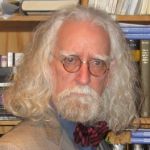
Jerold C. Frakes
Jerold C. Frakes teaches and conducts research on medieval European literatures. Formerly Professor of Comparative Literature and Professor of German at the University of Southern California (1982–2006), he is currently Professor of English at the University at Buffalo (SUNY). His graduate study was at the Universität Heidelberg (medieval Latin) and the University of Minnesota (medieval
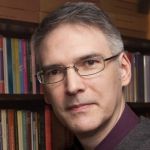
Bryan J. Cuevas
Bryan J. Cuevas is the John F. Priest Professor of Religion and Director of Tibetan Studies in the Department of Religion at Florida State University. He is a historian of religion and specialist in Buddhist traditions in premodern Tibet from the eleventh through the eighteenth century. His academic interests are inspired by a wide reading

Jon Coleman
Jon T. Coleman is a professor of history at the University of Notre Dame. His books and teaching span colonial and contemporary America and integrate social, cultural, and environmental approaches. He is the author of Vicious: Wolves and Men in America (Yale UP, 2004), winner of the the W. Turrentine Jackson Award from the Western

Jennifer Cole
Jennifer Cole is a cultural anthropologist whose research investigates how personal change over the life course shapes, and is shaped by, broader political, economic, and cultural transformations: the unruly terrain where person and history meet. Drawing on intensive fieldwork in Madagascar and now in France, her work addresses these issues by studying social memory, youth


D. Graham Burnett
D. Graham Burnett is an editor at Cabinet, the Brooklyn-based quarterly of art and culture; he teaches at Princeton University, where he holds an appointment as Professor of History and History of Science, and affiliations with the Interdisciplinary Doctoral Program in the Humanities (I-HUM), the School of Architecture, and the Princeton Environmental Institute. Burnett studies
Nathan Brown
Nathan J. Brown is professor of political science and international affairs at George Washington University and nonresident senior associate at the Carnegie Endowment for International Peace. He has worked on issues of regime change, constitutionalism, and the rule of law in the Arab world, as well as on Islamist movements. His most recent book is

Yomi Braester
Yomi Braester is a scholar of modern literary and visual culture, with a special interest in China since 1949. After earning a Ph..D in Comparative Literature at Yale University in 1998, he was a postdoctoral fellow at UC Berkeley (1997–1998), taught at the University of Georgia (1998–2000), and is now Professor of Comparative Literature and
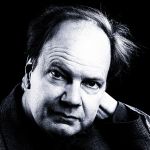
Philip Boehm
Philip Boehm’s career zigzags across languages and borders, artistic disciplines and cultural divides. He is the author of more than two dozen translations of novels and plays by German and Polish writers, including Nobelist Herta Müller, Christoph Hein, Franz Kafka, Bertolt Brecht, Ida Fink, and Stefan Chwin. Nonfiction translations include A Woman in Berlin by

Philip Bohlman
Philip V. Bohlman is the Mary Werkman Distinguished Service Professor of Music and the Humanities at the University of Chicago, and Honorarprofessor at the Hochschule für Musik, Theater und Medien Hannover, Germany. His research and teaching range widely across many fields, with particular emphasis on the intersections of music and religion, race, and empire. An
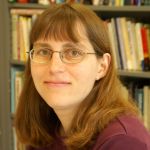
Elizabeth S. Anderson
Elizabeth Anderson is John Rawls Collegiate Professor and Arthur F. Thurnau Professor of Philosophy and Women’s Studies at the University of Michigan, Ann Arbor. A graduate of Swarthmore College (B.A., 1981), she earned her Ph.D. in Philosophy at Harvard University in 1987, where she was a Charlotte W. Newcombe Fellow and winner of the Emily
Stephen Yablo
Stephen Yablo is Professor of Linguistics and Philosophy at MIT, where he has taught since1998. He began as a logician interested in the theory of truth, and its seeming implication that no language can fully express its own semantics. A brief, strange conversation with Alfred Tarski, the father of modern truth theory, led him to
Luise White
Luise White is professor of history at the University of Florida, where she has taught since 1998. Trained in Great Britain in the era of Thompsonian social history, she spent most of her career researching and writing the social and cultural history of colonial East and Central Africa, using interviews to recuperate the lives and

Gayle Wald
Gayle Wald is Professor and Chair of English at George Washington University, where she teaches African American literature and U.S. popular music culture. She received her B.A. in English and French from the University of Virginia (1987) and her Ph.D. in English from Princeton University (1995), where she benefited from a lively intellectual community of

Steven Ungar
Following studies at the University of Wisconsin-Madison and Cornell University, Steven Ungar’s teaching and research at Case Western Reserve and at Iowa have increasingly engaged topics in philosophy, history, and film linked to 19th- through 21st-century French literature. A 1981 Camargo Foundation Fellowship supported completion of Ungar’s first book, Roland Barthes: The Professor of Desire

Francesca Trivellato
Francesca Trivellato is Frederick W. Hilles Professor of History at Yale University and a scholar of the social and economic history of early modern Europe and the Mediterranean. She received her B.A. from the University of Venice, Italy (1995), a Ph.D. in economic and social history from the Luigi Bocconi University in Milan (1999), and
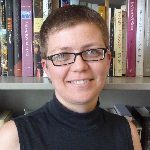
Magda Teter
Magda Teter grew up in Cold-War Poland. Having received an M.A. from the School of Oriental Studies at the University of Warsaw, Poland, she moved to New York and earned her M.A., M.Phil., and Ph.D. from Columbia University. She currently teaches at Wesleyan University. She specializes in early modern religious and cultural history, with emphasis